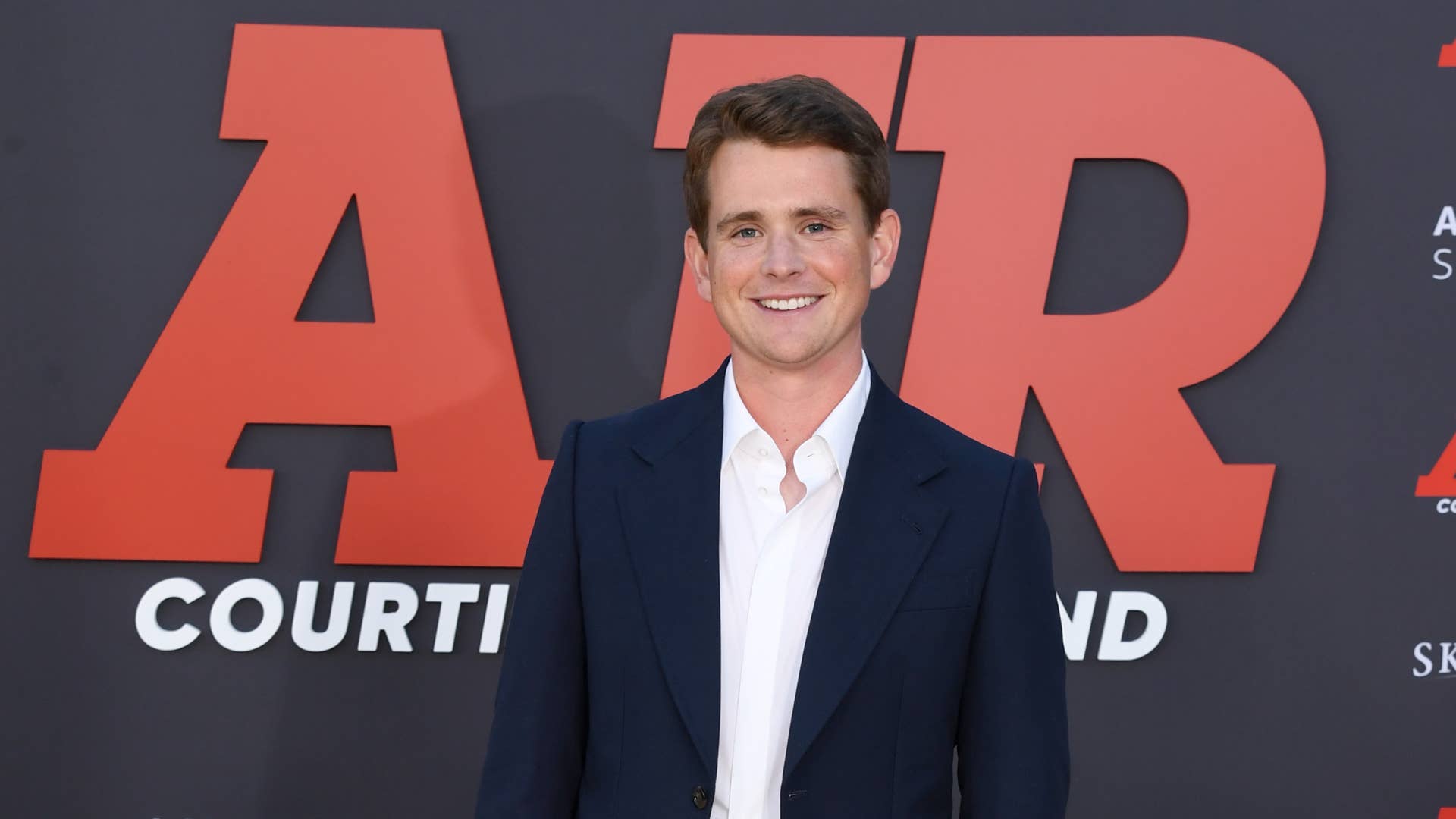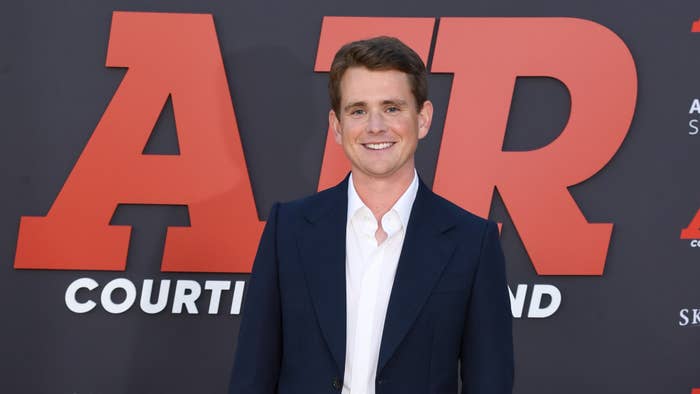
Is Air a heist movie? In no uncertain times, yes—and intentionally so.
As writer Alex Convery explained to Complex during a 30-minute chat conducted amid sustaining post-SXSW hype, the process-focused works of Steven Soderbergh were among the films he turned to as inspiration when writing the script for Air.
The film tells a story that’s at least somewhat familiar to almost every single person on the planet: Namely, the genesis of Michael Jordan’s Nike sneaker, the Air Jordan. Incredibly, it manages to do so while bringing together a seemingly disparate range of influences. It’s a heist film, yes, but it’s also a Jerry Maguire-y root-for-the-guy-with-the-crazy-idea rollercoaster ride. It’s a bit Moneyball, too. There are sprinklings of a classic Sorkin walk-and-talk.
But at the core of it all, indisputably, it is simply a great story—the cinematic telling of which started not with Ben Affleck-adjacent ambitions but with an expectation that, at best, Convery would get a solid writing exercise out of the experience. “I’d be lying if I said I thought it would be anything other than a good writing sample that would be read around town and would probably get me another paid writing job,” the screenwriter tells Complex. “I never thought—there was no world in which it could get made.”
In 2021, the screenplay appeared on the Black List under an alternate title, Air Jordan. The following April, industry trades revealed that Ben Affleck and Matt Damon had boarded the project with Amazon Studios. Fast forward to March of this year, and the Convery-penned film was getting an enthusiastic standing ovation upon its premiere as part of the 2023 SXSW lineup.
Below, see Complex’s conversation with Convery in full, detailing how an early pandemic flash of inspiration kickstarted a year-long journey in Final Draft that eventually led him to Affleck and company.
This conversation has been edited and condensed for clarity.


And this was in 2020?
I think that Last Dance episode was in May of 2020. I started lightly researching [at that point]. I probably started writing in full in July 2020. And it still was just kind of a nights and weekends project. I had other stuff that I was working on that was my paid work at the time so that took precedence.
How long did it take to write?
It took me a while to write. It took me about a year which is pretty long for just a first draft of a screenplay. And then, you know, I just kind of surprised my reps and emailed them the first draft and said, “You’re gonna kill me but I’ve been working on this thing about Nike signing Michael Jordan and I know we can’t do anything but give it a read.” I’d be lying if I said I thought it would be anything other than a good writing sample that would be read around town and would probably get me another paid writing job. I never thought, there was no world in which it could get made.
Especially at this scale, right?
Let alone, again, getting made at all. But yeah—with this cast and this crew and everything, I never would have believed it. So my reps went out with the script and there was a lot of interest in it. I ended up going with Skydance and Mandalay. One, they were really bullish that it could get made. And at that stage in my career getting a produced credit was the next step for me so that was exciting on paper.
They also had a connection to Sonny. The guy who runs Skydance Sports, Jon Weinbach, directed Sole Man. So that seemed to make the most sense. And then right after optioning the script to them I drove down to Palm Springs to meet with Sonny and his wife Pam and spent the day with them, went through the script, and talked about that time in their lives and what we got right and what we got wrong and all of it. Sonny and Pam are just the greatest humans, the nicest people. Sonny obviously has seen everything, done everything, met everyone. Of all the crazy things about this project, just being able to tell his story and solidify his legacy and make sure that people know the part he played has been super gratifying.
You mentioned meeting with Sonny. Were you able to meet with anyone else, post-selling the script and getting it to that next stage?
I almost met with Peter Moore but by the time I had met with Sonny, Peter was already very ill unfortunately. So we were starting to line up a meeting and then unfortunately he passed away before I could get to talk to him, which is heartbreaking. But again, it’s really gratifying to know that his story, you know, there will be something left. Let alone designing the greatest shoe of all time and the Jumpman logo and all of that. I’m happy that he could kind of get some due.
And then obviously Rob Strasser passed away a long time ago so I wasn’t able to talk to him but his wife Julie wrote a great book called Swoosh. That was a key pillar of my research so it feels like I was able to talk to him and her. Obviously, reading Shoe Dog is like the same thing for Phil [Knight]. I was able to tap into him there. And then Ben flew down to meet Michael. He was, from day one he said, “I’m not gonna do the movie if Jordan doesn’t want us to do it.” That conversation became incredibly influential in terms of adding George Raveling to the script, adding Howard White to the script.
As he’s said many times, getting Viola Davis to play Deloris took the movie to a whole different level. So it was great. It was super collaborative and I feel like Ben really went about everything the right way. At the same time, I’m happy that I specced it. I think if I had gone to Sonny or if Ben had gone to Jordan and said, “Hey, we want to make a movie about you,” who knows how it works? But having a solid draft of the script ready to go and being able to say “our intention is to go make this movie,” it just made everything feel like more of a moving train than it would have otherwise.
Absolutely. You mentioned adding George and others after Ben came aboard. Were there any other kind of changes like that once the script got into his hands?
Yeah, Howard White was a huge addition and Chris [Tucker] really wrote most of his own stuff for the movie. It’s just such a pleasure to watch him create. And then there’s a lot here and there that Ben and Matt [Damon] did. Like they turned Sonny’s monologue at the end much more about kind of the cult of celebrity and what it’s like to be a public figure and have to have those expectations on your shoulder and be that person every day, all the time.
Deloris, once Viola was on board, they added a lot to her. Like that big phone call at the end, honestly she [improvised] a lot of it, too. It was such a cool experience, man. It sounds like I’m just saying this to say this but I’m not. When you look at the cast, they’re all filmmakers in their own right. Ben, obviously, has directed an Oscar-winning Best Picture, has an Oscar for Best Screenplay with Matt. They’re great producers. Even beyond that, Viola has JuVee (Davis and husband Julius Tennon’s production company) and just a fantastic, fantastic producorial mind. Jason Bateman—amazing director and writer and producer. Chris Tucker is a writer. So on and on, you had all of these filmmakers collaborating. It was really cool, man.
It’s really the perfect team to bring this story to life. I can’t imagine it with anyone else.
Exactly. I’ve been told many times, like, don’t get used to this.
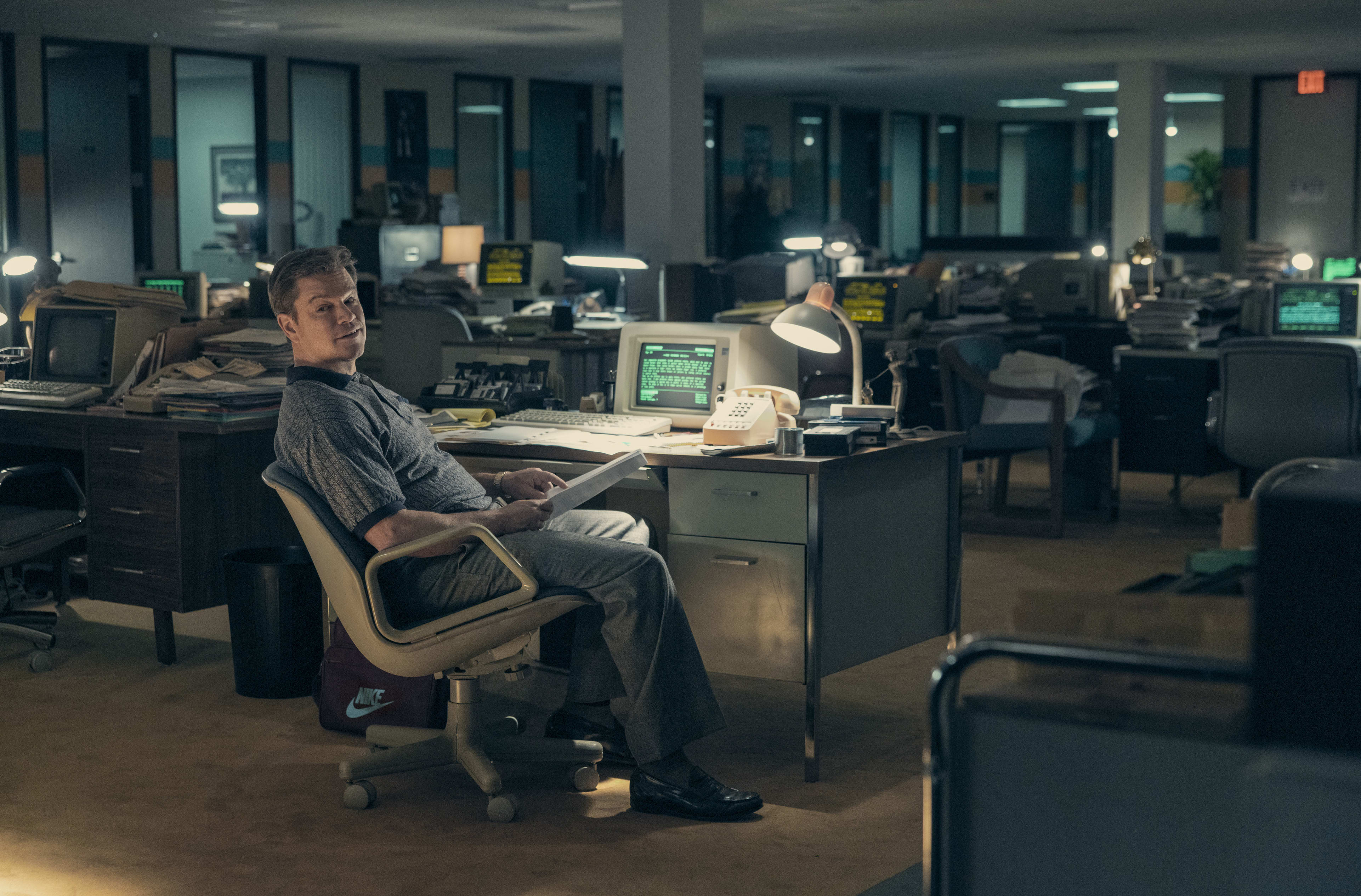
You mentioned also a little bit of the discrepancy in some of the story among some of the people involved. How important was it to you to pay attention to that or were you more chasing story the whole time?
A little bit of both.
I know Ben told everyone at SXSW he was not worried about it being a historical film, necessarily.
I mean, look. They call it the Rashomon of shoe deals for a reason. Everyone has their own perspective and angle on it and everyone wants to take some credit. Once the decision was made that this was gonna be from Sonny’s point of view and also from Deloris’ point of view, you build the story around them. For the most part, these conversations happened. These were the people that were involved.
Did it all happen in this order and in this timeframe in these locations? No. Obviously there were certain dramatic liberties taken. I think the biggest one being just the timeframe of the movie. Obviously a deal like this, it takes months and months and months to come together and it’s condensed into a shorter span of time for the sake of being an entertaining, watchable movie and not a documentary. I respect that about Ben a lot. There’s a lot of people who are like, “I’m only gonna do this if it’s basically 100 percent accurate. It’s like, then make a documentary.”
It’s not possible, yeah.
Yeah, it’s the closest you’re gonna get with it still being an entertaining film, which is, to me, the best of both worlds.
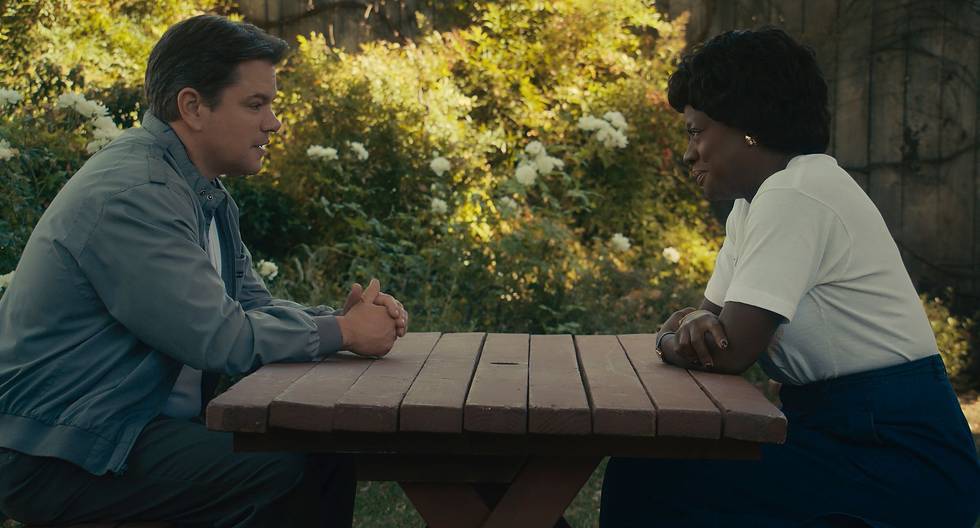
When writing it, did you have anyone specifically in mind for these roles? Were you thinking that far ahead if this were to ever get made?
No, I mean, I usually don’t write like that to begin with. But especially writing something like this where every character in it is a real person. I wasn’t thinking about who would play those characters, I was just thinking about them as real people. Look, you so rarely get talent like this in a movie. It can be kind of dangerous to write like, “Oh this should be this A-list actor.”
There’s different versions of it, right? Obviously, if you’re writing a smaller movie that you want to cast yourself, it’s probably smart to do that. Or if you’re a director like [Quentin] Tarantino, when he writes he can basically choose whoever he wants. It’s a little bit easier at that point. But no, for me, it was—especially on a true story like this—just write it as if it’s the real people and it’ll work itself out.
Is there anything you looked to in terms of other scripts inspired by true events that you were like, this is the model for me of how to do this the right way?
Yeah, I mean, there’s obviously stuff that’s in this world. Like Moneyball, obviously, is an easy example.
That’s one of my favorite movies.
Me too! Just as a fan more than anything else. They’re very different stories but just the way it’s told. I certainly looked at that and other [Aaron] Sorkin stuff in terms of people in rooms talking. No one really does it better. You know, it’s funny. I looked a lot to other workplace stuff. Mad Men was a big example. I actually was binging Halt and Catch Fire during the time I was writing this.
Yeah! Underrated show.
Totally. I felt horrible after watching it that I hadn’t watched it when it was actually on. I was really drawn to stuff set in the workplace and how to dramatize an office. And then the other thing that I looked at too, which may sound funny and maybe a little bit pretentious, were these heist process movies. I read a lot of Steven Soderbergh stuff.
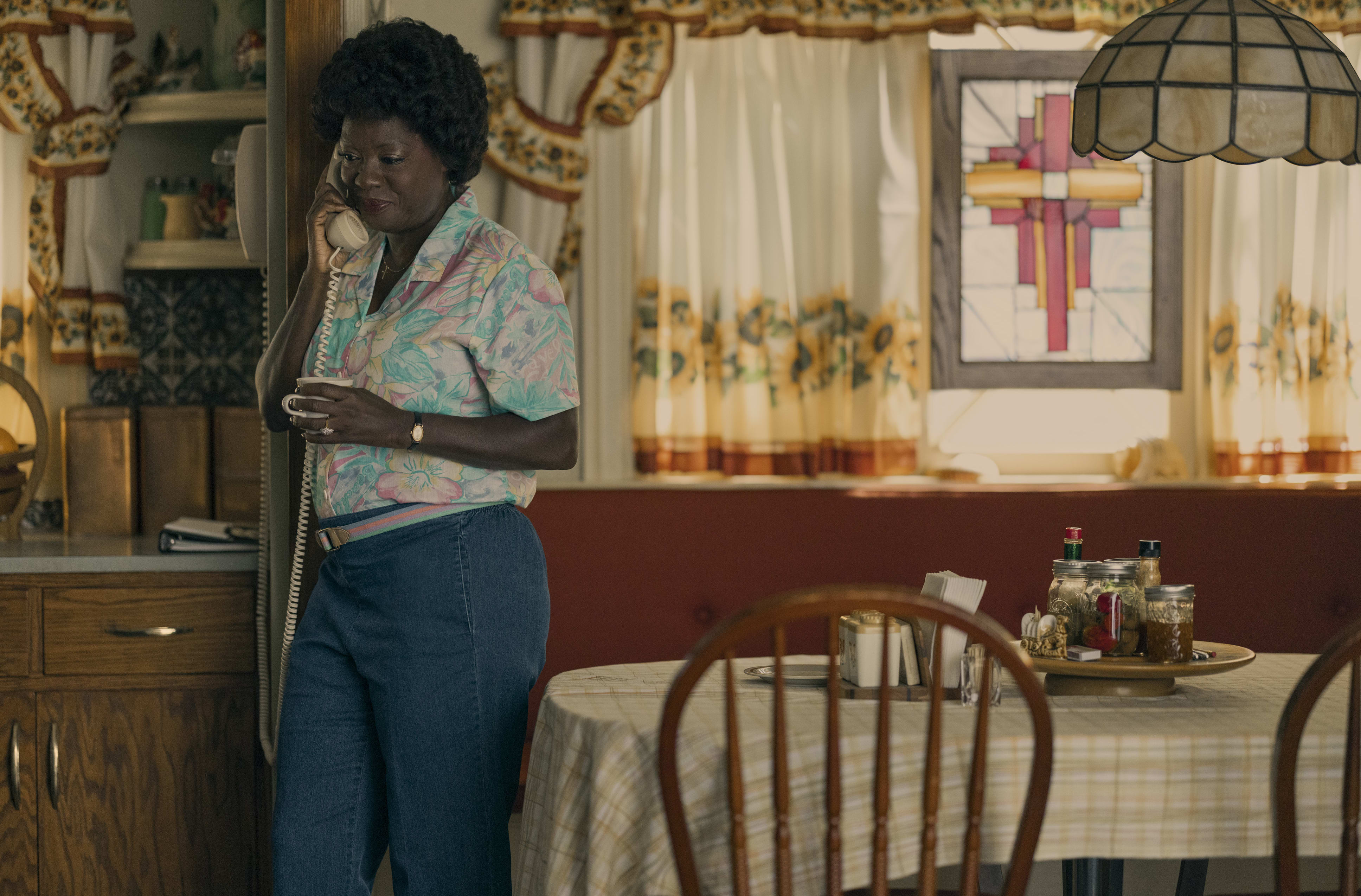
It does feel like a heist film on a certain level.
Yeah, exactly. You want it to have that pace and intensity and stakes so I looked at a ton of Soderbergh stuff. Obviously, Ocean’s Eleven is the most famous example. But Soderbergh always talks about process movies which I really like, too. I looked at a lot of that and read a bunch of those scripts and it all came together. But that’s kind of the stuff that was in the air for me at the time. No pun intended!
What does your family and friends think of this? Did you tell them when you were writing this or was it something you passed on when it was like, this might be a real thing?
No, I really didn’t tell anyone, you know. Because it was kind of a for-me project. I would cheat it a little bit. I wouldn’t tell people I was working on the script but I would try to talk to people about the Jordan and Nike story and see how much people would know about it. Just because to me it’s a real indicator if something will work.
If you’re talking about a true story and people are like, “Oh, I didn’t know about that!” or “Oh, no way! Really? Converse was the biggest basketball shoe?” The more I had those conversations, I was like, OK. People don’t know this story as well as maybe, you know, like you and I would. And then, I mean, obviously now you tell everyone like, “Oh I’m gonna go out to Hollywood and try to write movies,” it’s a little bit like, “Good luck!” You know? It’s definitely gratifying to finally have one of these made and made at this level. It’s great but at the same time you really can’t focus on the results. You just have to focus on the process.
Of course.
And ultimately the decision to make a movie is never the writer’s decision. Hence why I have a graveyard of unproduced scripts on my laptop. So it’s like, as long as you like the writing and you’re happy with it and you feel like you’re writing as best as you can and the work is the best representation of your work it can be then, you know, it’s kind of like, “What direction is the wind blowing?” After that it’s not up to you. You can’t emotionally invest yourself in results. You have to emotionally invest yourself in the process or you’ll go crazy in Hollywood.
Yeah, of course. I can relate.
So much of it is the right person reading the right script at the right time. And for this, Ben and Matt were starting this new company [Artists Equity] and a lot of the themes and ideas of the movie really relate to the core ideas of their company [like] equity for artists and breaking the rules and changing the paradigm and all of that. So it was just kind of this cosmic thing of them reading the script at the perfect time. If Ben had gotten this script five years ago, he’s probably not making the movie. So much to it is right time, right place. And luck is always the biggest factor in all of this stuff. But the only way you can create your own luck is to put as many screenplays out there as possible and do the best work you feel like you can and the rest is kind of up to fate.
What do you feel is the most, aside from the obvious elements of the story, what is most attractive to you about this specific story? What make it a story of inspiration to you?
For me it’s always about the characters. I just think finding Sonny and Deloris were what elevated the project for me. But look, the easy answer is as a kid from Chicago, Jordan is a mythical figure. Not only of childhood but his presence is still felt almost at every Bulls game. It’s funny. I got married last summer and my wife and I went overseas for our honeymoon and the amount of Jordan jerseys in Europe, I mean, it’s just crazy.
That’s what I like about it. It’s just a way to tell a bigger story but in a small way. I call it a big little movie. The little part being that it’s small in scope, it’s about a shoe deal, it’s people in offices talking. But the big part is it’s about Nike and Michael Jordan. You talk to 100 different random people, all 100 are going to be able to say “I know who Michael Jordan is. I know what Nike is.” It hopefully is tapping into a broader audience than may meet the eye while still not talking down to them either.
So with the movie now just days away from the world being able to see it, how are you feeling about that? Do you plan to go see it in a theater just locally?
Yeah, for sure. I’ll go buy a ticket and sit in the back of the theater and watch it. The journey the movie’s gone on from, like, a script that no one would ever make to—at first, it was, “OK, it’s gonna be a streaming movie and Amazon’s gonna do it and it’s gonna drop on Amazon Prime.” And great, you know. I get why there was the thought of the streaming. But then once we had the cast that we had, once the movie started testing well, it was like, “We’re gonna put it out on the big screen.”
It’s a testament to the story and that it can find a bigger audience. But at the same time, once it’s out in the world, it’s not mine anymore. Or Ben’s or Matt’s or Viola’s or anyone’s. It belongs to everyone. So however it’s received and however it does and all of that, that’s not my place to say and it’s also not my place to emotionally invest in. Obviously, I hope the best for it but at the same time, you’re on to the next one and you try to capture all the same stuff that’s in this one on the next project. We’ll probably fail but you just keep going. Because one in 100 scripts can get to this level. So you keep going and try to do it again.
To close out here, you mentioned kind of what’s going on next. What is next for you? Can you speak anymore about that?
Kind of. I’m doing another sports movie for Skydance and Mandalay which I would love to talk about and hope to talk about a lot. But there’s still rights issues and it’s similar, we’re talking about real people and just wanna be respectful of that.
Is this already written?
I’m writing it right now so I’m in the thick of that draft and will get back to it after this Zoom essentially. I’m excited to do that one next. Basically at the end of Air, that production, Mandalay and Skydance were like, “Is there another sports thing you wanna do?” And this story I’ve been wanting to tell for a long, long time so I’m happy to be able to write it. After that, we’ll see. I’m kind of leaving things open. As much as I love these sports movies, too, I’m gonna try to do other stuff as well and just keep looking for great characters and cool stories to tell. Other than that, there’s not much you can control.
Right, perfect. Well, I’ll let you go and congratulations again. I so love this movie I can’t wait for other people to see it. Congrats on the success so far.
Thanks, man. That means a lot. I had Complex in mind a lot when I was writing it so it’s cool to hear that. Great to meet you.
Air is in theaters now.

